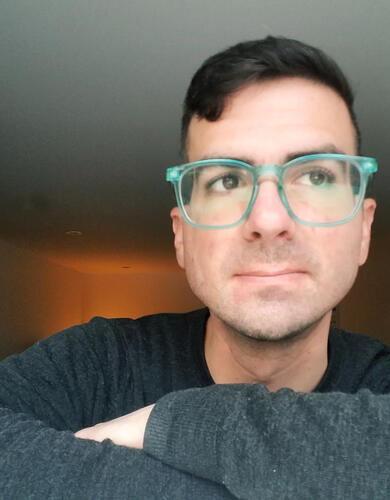Sept. 14, 2023
New assistant professor of planning to shape the future of equitable, sustainable development

A transformative journey is ahead for the University of Calgary’s School of Architecture, Planning and Landscape (SAPL) with the arrival of Dr. Travis Bost as its new assistant professor of planning in the Bachelor of Design in City Innovation (BDCI) program.
Bost, PhD, brings a unique blend of practical experience and academic research to his role with a focus on the intersection of the political economy of development and the politics of planning for a more equitable and just climate future.
In his new position, Bost will lead research-driven courses dedicated to exploring the histories and lasting structures of settler-colonial development in Southern Alberta and what they mean for shaping just climate change planning today. He aims to foster a community of scholar-practitioners who will redefine the boundaries of planning.
Prior to entering academia, Bost worked as a licensed architect in New Orleans and Boston, where he explored strategies for developing urban infill housing, urban mobility planning and public artwork installations.
His path was paved by his extensive engagement with post-Hurricane Katrina disaster response, recovery and redevelopment in New Orleans, where his decade-long experience as a student, resident and architect provides him with valuable real-world insights into the challenges and opportunities in planning and development.
Bost is particularly interested in how historically embedded structures, such as race, are used to rationalize or explain systemic environmental injustice, and how, he says, “thinking development differently through non-Western perspectives, such as those from the Caribbean and Black Atlantic, might allow planners to imagine more just modes of confronting the current climate crisis.”
Bost's academic credentials further reinforce his role at SAPL. He holds a PhD in planning from the University of Toronto, a master’s degree in design studies from Harvard University and a professional architecture degree from Tulane University. He comes to UCalgary from his current position as Arts & Science Postdoctoral Fellow at the Centre for Caribbean Studies at the University of Toronto.
For Bost, UCalgary and Southern Alberta are exciting contexts in which to contemplate futures of just, sustainable development. “No strangers to either the complex nature of resource extraction, nor to the hazards of flood and fire disaster, Calgarians are in many ways already intimately enmeshed with the pressing challenges of climate-change struggles,” he says.
Through interdisciplinary and studio-based courses, Bost will guide students in devising thoughtful planning solutions for urgent challenges, such as climate-change mitigation, through the combination of design thinking with critical thinking about the social and economic processes that define contemporary urban life.
“I look forward to engaging a lively community of graduate and undergraduate students and fostering a collective of budding scholar-practitioners interested in thinking expansively about what ‘planning’ is and can be — thinking, that is, not so much about what things go where in the city as how we might live differently,” he says.
The SAPL community welcomes Dr. Travis Bost with great anticipation. His expertise in both research and practice, combined with his innovative ideas, promises to make a significant contribution to SAPL’s academic journey to creating more equitable and sustainable futures in design and planning.
UCalgary’s School of Architecture, Planning and Landscape (SAPL) prepares students for exciting and meaningful professional careers through the delivery of a distinctly unique design school experience. SAPL combines a rich and interdisciplinary design-based philosophy with an entrepreneurial mindset, sharing a deep commitment to working with industry stakeholders and community leaders at local, national and international levels to address some of society’s biggest challenges in new and creative ways.
